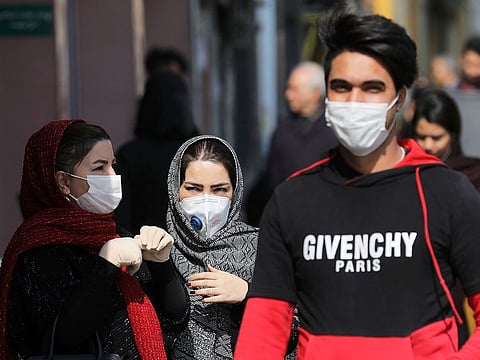Coronavirus: Regional contingency plan needed
Arab League and Gulf Cooperation Council must take a lead to tackle the viral outbreak

As the Middle East reels under the scare of the novel COVID-19, it is important that countries in the region get the necessary vital support from international organisations and other parties to be able to deal with the potential spread of the disease.
According to the World Health Organisation (WHO), not all countries in the region are able or adequately prepared to handle the possible infection spread. There are countries that have extremely underdeveloped heath systems while some others are embroiled in military conflicts or civil strife such as Syria, Libya, and Yemen.
Many countries in the region are less fortunate and lack the economic ability or the necessary resources to provide adequate health services in case of emergencies such as a wider spread of the coronavirusGulf News
In an interview with Gulf News, Dr Ahmed Al Mandhari, the WHO Regional Director for the Eastern Mediterranean, stressed the fact that almost two-thirds of the region’s 22 countries are directly or indirectly facing “complex emergencies,” due to their domestic issues. In addition, “the weak health systems”, as he put it, further increases the vulnerabilities of populations and the risk of disease spread.
In the Middle East, the number of coronavirus cases has risen in the past few days to 730 infections. About 600 of those cases are in Iran alone. The latest death toll in Iran is 43.
Global standards
Gulf countries are in a better shape than the rest of the Middle East. Their health services have been upgraded to global standards in the past two decades. The UAE, for example, boasts of state-of-the-art health institutions, affiliated with internationally acclaimed hospitals and medical research centers. Other Gulf countries have similar arrangement.
But many countries in the region are less fortunate and lack the economic ability or the necessary resources to provide adequate health services in case of emergencies such as a wider spread of the coronavirus. Here comes the need for the WHO and other countries to help and support Middle East states to be able to deal with the disease.
Of course, those countries need to be transparent and agile in dealing with a possible spread of the virus, but it is the duty of all countries in the region to come together and assist in dealing with outbreak.
The WHO, the Arab League (AL) and the Gulf Cooperation Council (GCC) need to come up with a contingency plan that would contain any potential threat to the region. Dr Al Mandhari said the WHO was ready to do that. It is upon our regional blocks and organisations such the AL and GCC to take the lead.
Sign up for the Daily Briefing
Get the latest news and updates straight to your inbox



